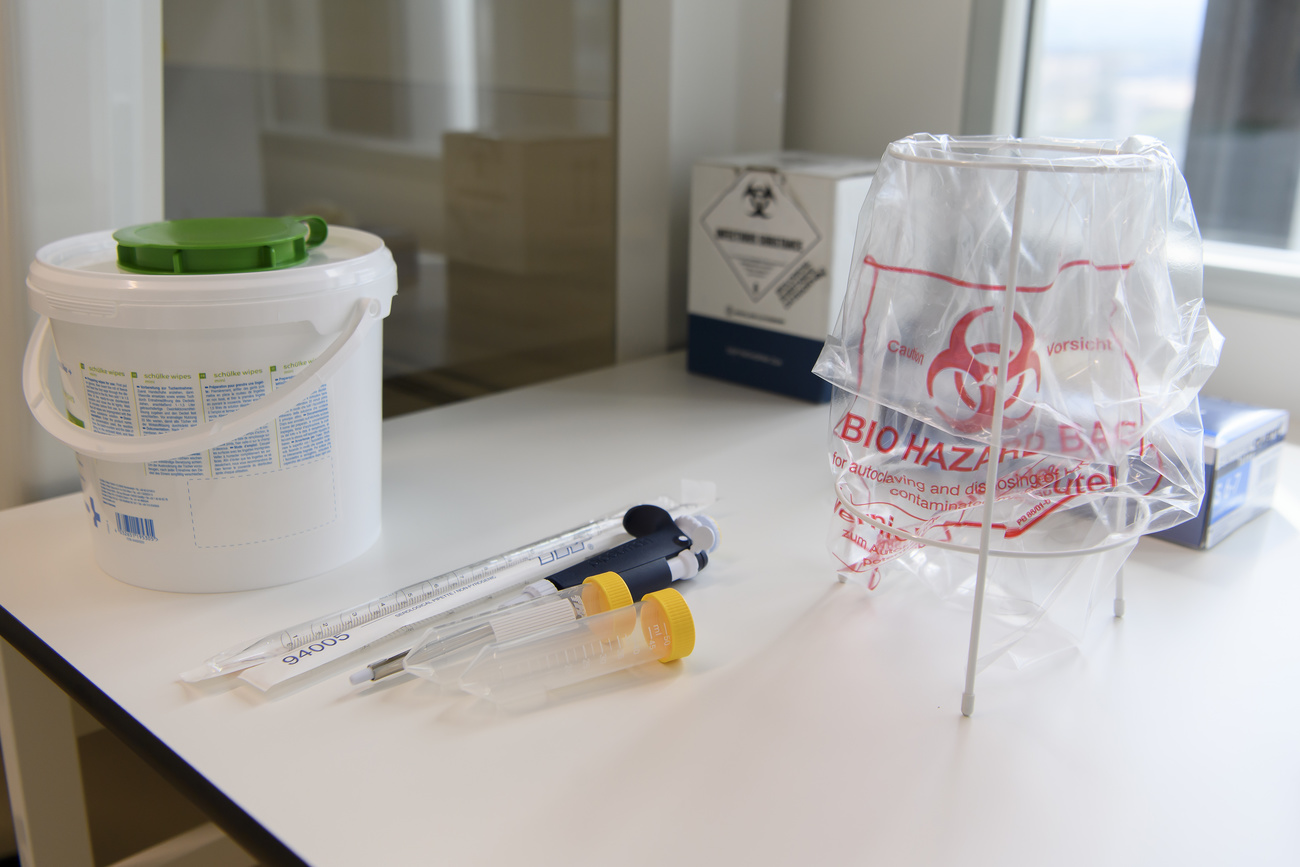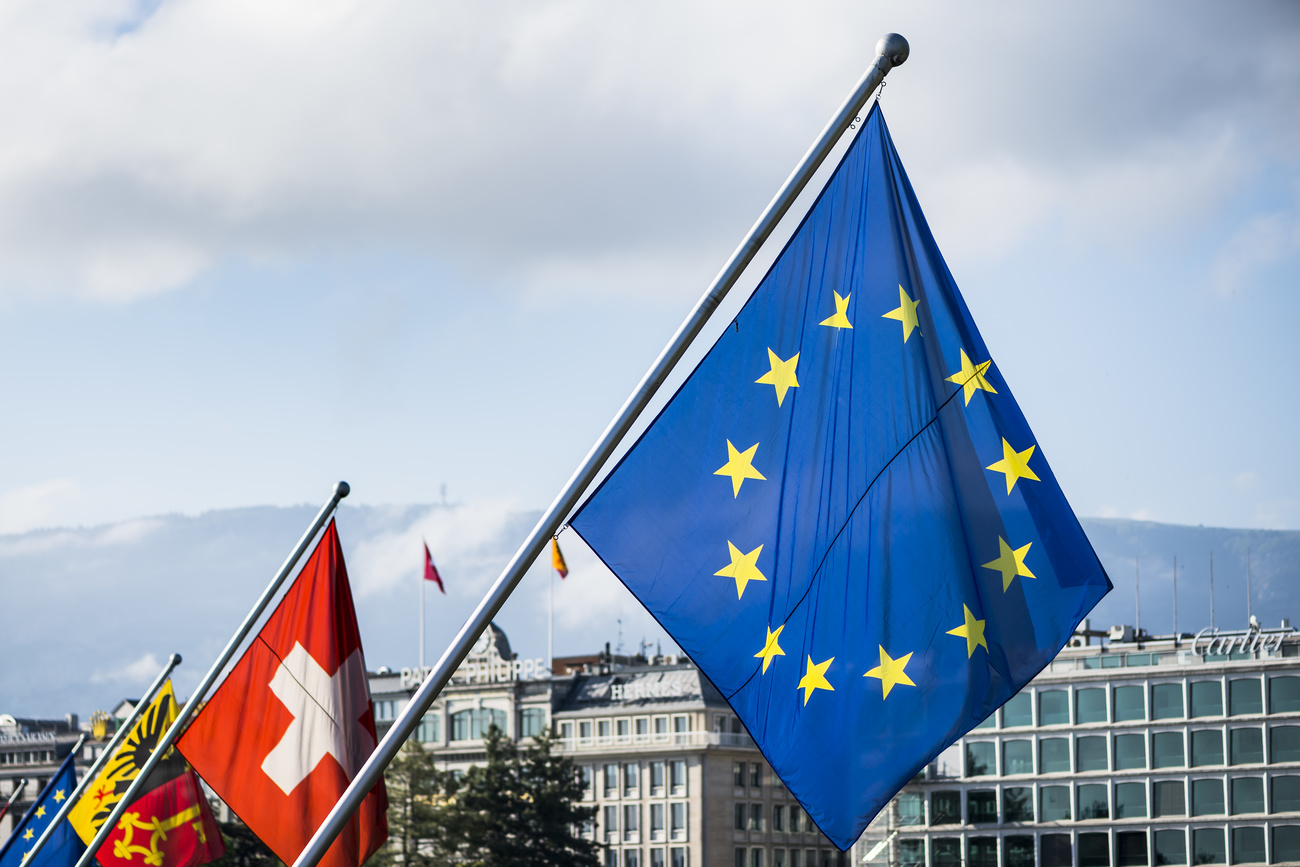Erasmus and Switzerland – what next for student exchanges?
Switzerland’s refusal of the framework agreement with the European Union will have a direct impact on Swiss student mobility, argues Lucas Schneeberger, from the Erasmus Student Network (ESN) Switzerland.
The recent rupture of the negotiations between Switzerland and the European Union on the Institutional Framework Agreement, to regulate long-term ties between Bern and Brussels, is a serious blow for bilateral relations. It plunges Switzerland into a period of uncertainty that is particularly harmful for students and young people in general.
Switzerland has been excluded from the Erasmus+ student exchange programme since 2014, but there had been hopes that the country would rejoin in the near future. This possibility is now practically excluded. With the framework agreement buried, the State Secretariat for Education, Research and Innovation (SERI) has confirmed that talks have stalled. “The Federal Council [..] intends to enter into negotiations [about being associated to Erasmus] as soon as the general situation of Swiss-EU relations enables this,” it wrote in an updateExternal link in May.
On May 26, the Swiss government rejected the institutional “framework” agreement between non-EU Switzerland Brussels due to “substantial differences” between the two sides.
Fears have been that Swiss-EU tensions could impact Swiss participation in Horizon, the EU’s key research programme and Erasmus+, as they did in 2014 after the controversial Swiss vote to re-introduce immigration quotas for EU citizens. The Swiss were later able to rejoin Horizon 2020 (as an associated partner, from 2017-2020) but are still excluded from Erasmus+.
On July 14, it was announced that Switzerland has effectively been locked out of the Horizon Europe (the 2021-2027 follow-on scheme to Horizon 2020) until further notice. EU leaders are expected to discuss the issue when they meet in autumn. Swiss Foreign Minister Ignazio Cassis met his EU counterpart Josep Borrell in Brussels on Tuesday. Negotiations have not been announced for Erasmus+, but a Swiss parliamentary motion asking for an association in 2021External link was adopted in 2017.

More
EU confirms Swiss ‘third country’ status for research projects
Lots of Swiss students simply say: “I am going on Erasmus next semester” without realising that their university does not take part in the Erasmus programme because Switzerland is still excluded. They may still go on an exchange programme, thanks to the alternative currently in place, “the Swiss Solution for Erasmus+”. This is managed by MovetiaExternal link, the National Agency for Exchange and Mobility. It consists of the Swiss-European Mobility Programme (SEMP), for student and staff mobility, and other funding to cover some non-academic exchanges. This “Swiss Solution” is not satisfying, as it is not sufficiently integrated in the European exchange system and because its target audience is not large enough. The EU’s Erasmus+ scheme also offers opportunities for vocational training or extra-curricular mobility, which SEMP does not. Sadly, despite student mobility playing a key role in the development of individuals during their studies, exchange possibilities for students in Switzerland remain drastically limited.

More
Students step up pressure over international exchanges
ESN SwitzerlandExternal link supports students on exchange as well as exchange returnees. During the pandemic, the organisation helped international students settle in during what were challenging times, as we have previously reported. It is made up of about 500 student volunteers.
ESN Switzerland has long campaigned for Switzerland to rejoin Erasmus; the matter has also been brought up with the EU Commission by ESN International. In September 2020, ESN Switzerland was among the student organisations who handed in a petition with more than 10,000 signatures calling on the government to start immediate negotiations to rejoin Erasmus.
Incomers
There are limits, too, on incoming mobility – for those students from European Higher Education Institutions (HEIs) who want to spend time in Switzerland. This only serves to impoverish the student intercultural experience and reduce diversity within our country. We suspect that Switzerland running its own standalone programme causes an administrative overhead for our partner institutions, which in turn plays a role in how much exposure Switzerland gets as an exchange destination among European students.
Taking a long-term perspective, the Swiss solution dramatically lacks vision. The exchange opportunities are supposed to mirror those in the Erasmus programme, but with a few years’ delay. In 2017, the Swiss authorities formulated a visionExternal link: everyone in Switzerland should take part in exchange and mobility activities at least once during their training or transition to working life, be it within Switzerland or abroad. Unfortunately, this goal will most likely never be reached with the current measures.
Shaping the future
Our fellow Europeans, on the other hand, are really shaping the future of education. The European Universities InitiativeExternal link encourages alliances between HEIs across Europe to propose joint study programmes. These will act as the foundation of a bigger EU plan, the European Education AreaExternal link, aimed at turning Europe into a giant campus where every student will be able to move around freely. This would notably include the automatic recognition of qualifications and learning periods abroad, a harmonised student calendar, a minimal administrative burden, and of course, generous funding.
Unless our relations with the European Union get better over the next months, we will also miss out on other important opportunities to collaborate – in addition to Erasmus.
One example is the European Solidarity Corps, which encourages international volunteering. This form of mobility is not covered by Erasmus and forms a standalone programme. Another key initiative is the EU research programme Horizon Europe. Switzerland having third party status in this programme, as it has been confirmed for 2021 – and possibly longer – would severely threaten our universities’ ability to benefit from European funding for research projects and to attract the best scientists worldwide. Endangering Swiss research excellence will definitely have an impact on the quality of Swiss education in the long term.

More
‘Reliable’ Switzerland ready to play role in EU research

In compliance with the JTI standards
More: SWI swissinfo.ch certified by the Journalism Trust Initiative






You can find an overview of ongoing debates with our journalists here. Please join us!
If you want to start a conversation about a topic raised in this article or want to report factual errors, email us at english@swissinfo.ch.